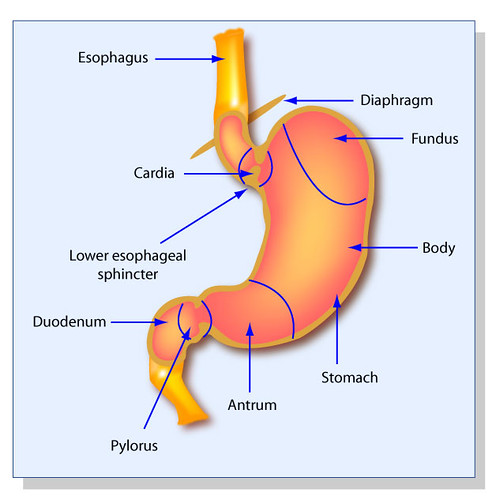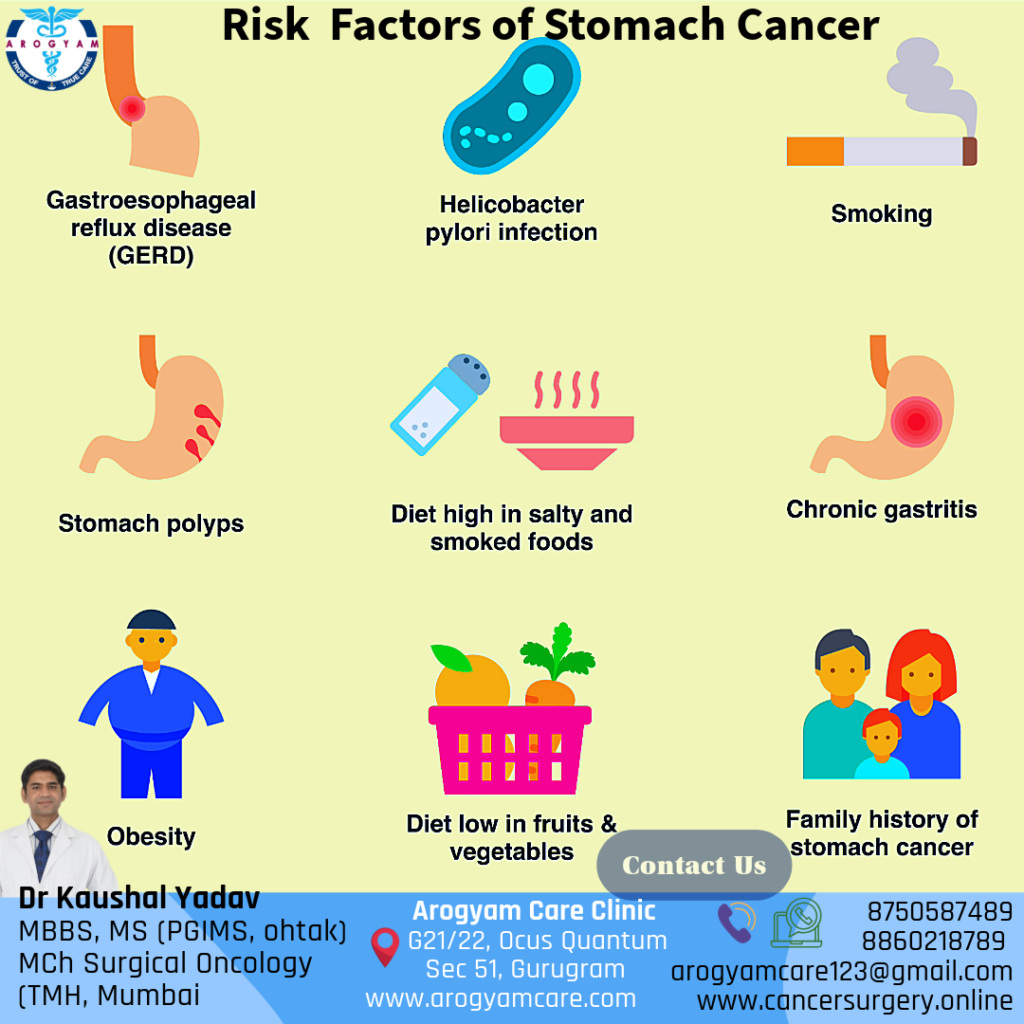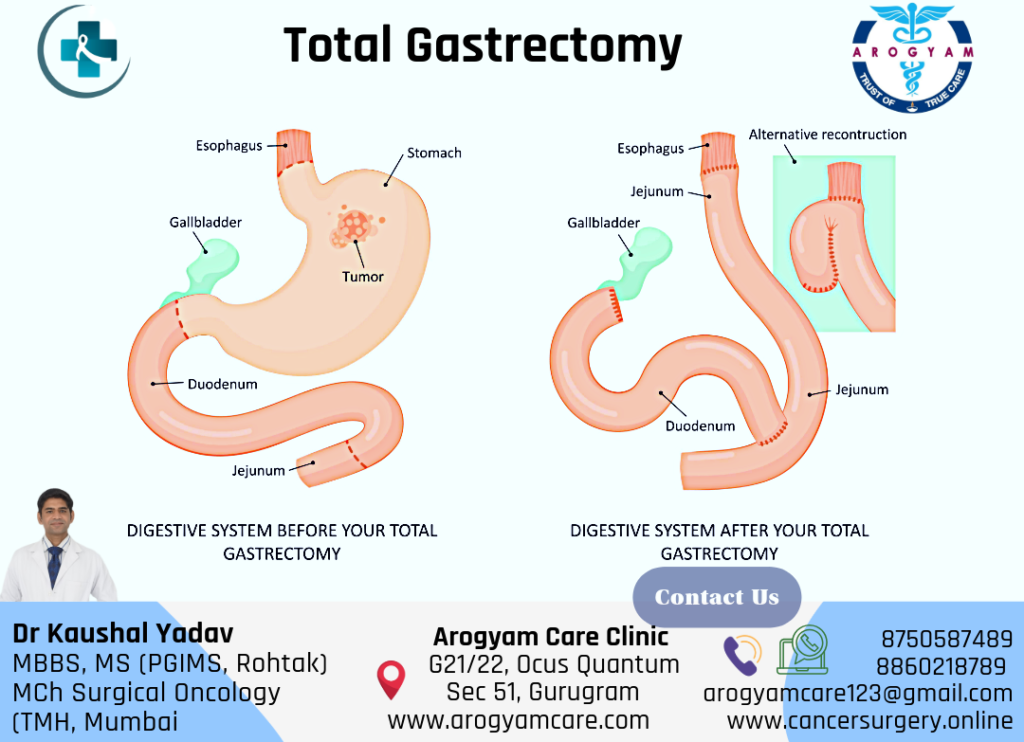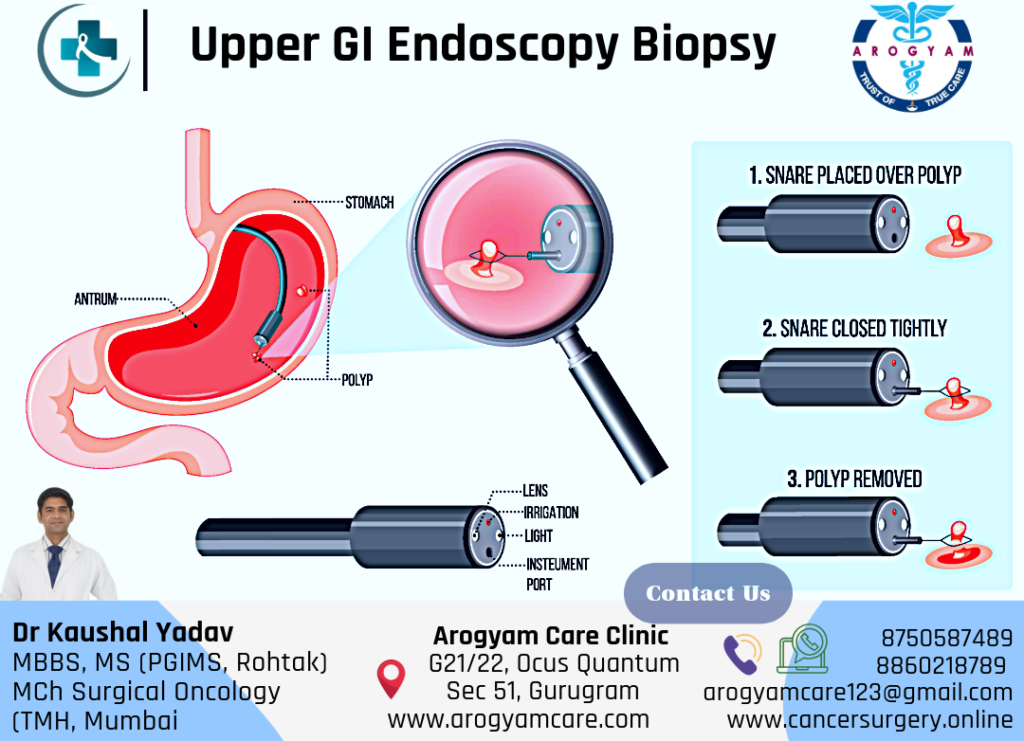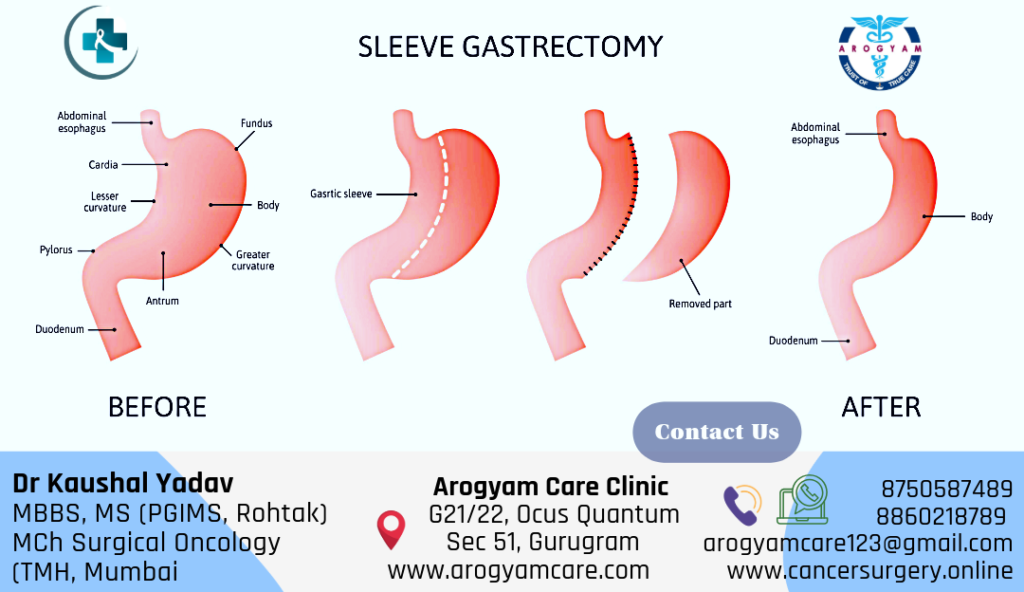Stomach Cancer
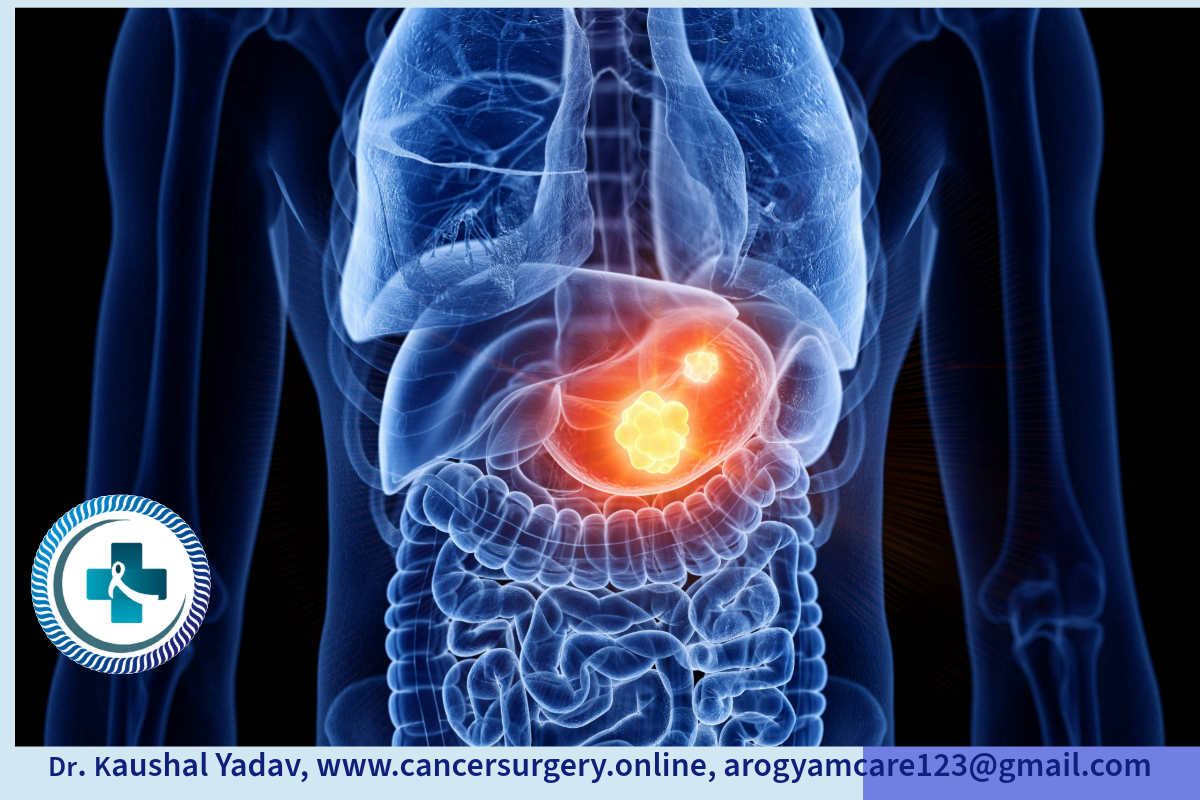
What is stomach cancer?
Stomach is a part of digestive organ system of the body. Food reaches the stomach from foodpipe (esophagus), where it is broken down into small nutrients both mechanically and chemically and then further passed into small intestine for absorption. When cells of stomach become, abnormal and grow out of control, stomach cancer arise. Stomach cancer is more common in Asia compared to Western countries
- Stomach cancer is 5th most common cancer and 5th most common cause of cancer related mortality worldwide.
- Stomach cancer is 5th most common cancer in Indian males. Overall it is 5th most common cancer in India and 5th most common cause of cancer related mortality in India.
Types of Stomach Cancer
Adenocarcinomas: These account for about 90% to 95% of stomach cancer cases. They develop in the cells of the innermost lining of the stomach. There are two subtypes:
- Intestinal adenocarcinomas: Usually slow-growing and more treatable. They often respond to targeted therapy drugs.
- Diffuse adenocarcinomas: Less common but more aggressive. They tend to spread quickly to other parts of the body.
Linitis plastica: A rare subtype of adenocarcinoma where cancer cells spread throughout the stomach, causing tissues to stiffen. It’s usually diagnosed at an advanced stage and can be challenging to treat.
Gastrointestinal stromal tumors (GISTs): These start in immature cells called interstitial cells of Cajal. They are less common but require specific management.
Other rare types: These include lymphoma and neuroendocrine tumors, which start in different cell types within the stomach.
Risk Factors: Stomach cancer causes:
- Dietary Factors- diets that have large amounts of smoked foods, salted fish and meat, Processed food and pickled vegetables increases the risk. Fresh fruits and vegetables decrease the risk.
Diets that are high in fried food, processed meat, fish, and alcohol (and low in vegetables, fruits, milk, and vitamin A) have been associated with an increased risk of gastric carcinoma because of increased production of nitrates.
- Age- more in >50 years
- Bacteria- H.pylori is the bacteria which causes inflammation and ulcer in stomach and increases the risk of gastric cancer
- Gastric ulcer and acidity/ acid reflux
- Obesity
- Smoking
- Alcohol
- Previous Stomach Surgery
- Radiation Exposure
- Family History/ Genetic Causes- small no of cases.
Screening for Stomach Cancer:
There are no specific general recommendations for screening or early detection for stomach cancer. In high-risk populations, main modalities which can be used for gastric cancer screening includes:
Upper Endoscopy: This procedure allows direct visualization of the gastric mucosa. Biopsies can be obtained to diagnose precancerous lesions like gastric atrophy, intestinal metaplasia, or gastric dysplasia, in addition to gastric cancer. Although more invasive and costly, upper endoscopy is sensitive for detecting various gastric lesions.
Contrast Radiography: Double-contrast barium radiographs can identify malignant gastric ulcers, infiltrating lesions, and some early gastric cancers. However, false-negative results can occur, especially in early gastric cancer.
Other Tests: While additional screening modalities like multi cancer early detection test have been proposed, further research is needed to support their use.
Alarmimg Signs: Stomach Cancer symptoms
At initial stages stomach cancer produce no symptoms. Its grows fast and at a time when swelling is felt in abdomen, it is almost incurable. Only around 20% of stomach cancer patients are found in early stages. Approximately 25% have a history of gastric ulcer.
Even in curable stages stomach cancer has high recurrence rates, which shows its high potential of systemic spread.
It is utmost important to consult your doctor for stomach related problems and investigate accordingly.
- Indigestion/ Dyspepsia/ Early Satiety/ Heartburn are usual initial symptoms
- Poor appetite
- Weight Loss
- Abdominal pain/ discomfort
- Vomiting- may be recurrent, may be associated with blood. Recurrent vomiting and when associated with blood is an important alarming sign which should never be ignored.
- Blood Loss: may be in small amount producing anaemia. Blood in vomiting in 20% cases. Blood loss may produce brown/ dark coloured stool.
- Spread inside abdomen produce fluid called malignant ascites
- Spread to other organs like liver, lung produce symptoms related to organ.
Apart from that stomach cancer also make a person week because of nutrition deficiency.
Investigations
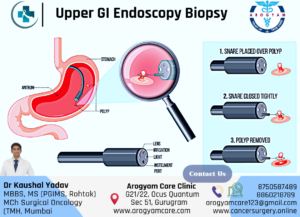 Upper GI Endoscopy: Endoscopy is the main test to diagnose stomach cancer. Every stomach related symptoms should be assessed properly and endoscopy should be done with low threshold whenever required. This is the most effective method to diagnose stomach cancer in early stages. Newer modalities also include endoscopic ultrasound as per requirements.
Upper GI Endoscopy: Endoscopy is the main test to diagnose stomach cancer. Every stomach related symptoms should be assessed properly and endoscopy should be done with low threshold whenever required. This is the most effective method to diagnose stomach cancer in early stages. Newer modalities also include endoscopic ultrasound as per requirements.- Biopsy: Suspicious areas/ growth or ulcer are subjected to biopsy by endoscope to confirm the diagnosis and type of stomach cancer.
- CECT Abdomen and Chest: identifies local extent and distant organ spread properly.
- PET CECT has limited advantages over and above CECT. A patient should not be subjected to repeated investigations again and again. Main emphasis is on treatment.
Stages of Stomach cancer:
Stage I: Limited to stomach
Stage II: Spread in deeper layers of stomach and limited no (upto 6) of nearby lymph nodes
Stage III: Full thickness involvement of stomach or direct spread in nearby organ or extensive regional lymph node spread
Stage IV: Spread to distant organs
Stomach Cancer Treatment:
Surgery known as gastrectomy is most effective treatment of stomach cancer and it is mostly planned with chemotherapy in stage II & III for better long term results. Only 20% patients reach in early stages when surgery is possible.
Partial Gastrectomy (Subtotal Gastrectomy):
- In this procedure, only part of the stomach is removed. It’s recommended when the cancer is localized to a specific area of the stomach.
- Lymph nodes and fatty tissue around the stomach may also be removed to ensure complete cancer removal.
Proximal Gastrectomy
- Used for stomach cancer situated in initial portion of stomach with healthy distal stomach.
- Proximal part stomach is excised, and healthy stomach joined with lower esophagus.
To Book Appointment for Stomach Cancer Surgery :
Integration of Multimodality Treatment
- Chemotherapy: Usually given either before or after Surgery in Satge II onwards stomach cancers. Sometimes given in combination with radiation therapy. In stage IV usually only chemotherapy is given
- Radiation Therapy: often combined with chemotherapy in adjuvant (after surgery) settings.
- Immunotherapy and Targeted Therapy may help in certain advance situation after chemotherapy.
Prevention of Stomach cancer:
- Maintain healthy body weight
- Diet rich in fresh fruits and vegetables
- Avoid Alcohol
- Avoid Tobacco
- Treat H. Pylori Infection and Gastric ulcer
- In hereditary diffuse gastric cancer syndrome, prophylactic gastrectomy is advised
Got some questions
- If all relavant examination and investigations has been done than plan of treatment is finalized with colon cancer surgeon
- After deciding surgical procedure cost estimate can be taken from billing department or hospital. Clinic or hospital department coordinator will assist in case any help required. +918750587489,
- you can visit nearby hospital for colonoscopy screening as advised in our screening section or you can read various society guidelines like American cancer society, USPTF.
- You can consult us through our online consultation link. https://api.whatsapp.com/send/?phone=918750587489&text=I+am+Looking+for+an+appointment+with+Dr.+Kaushal+Yadav.+Please+Help&type=phone_number&app_absent=0
Best Doctor for stomach cancer treatment in Gurgaon says for stomach cancer, the overall 5-year survival rate for localized disease in stage I&II is 70%, for stage III is 30-50% and for stage IV is <5%.

